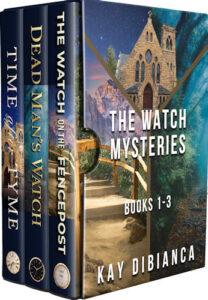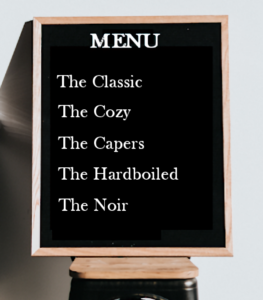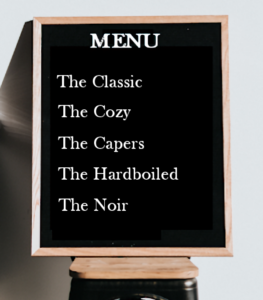 When I was writing my first novel, a friend asked what kind of book it was. I said it was a cozy mystery, but she didn’t know what that was, so I explained, “It’s a mystery with no explicit violence, no explicit sexual content, and usually no profanity. After her cheerful, “I guess you realize there’ll be no audience” response, I pretended to smile. (I get that remark a lot.)
When I was writing my first novel, a friend asked what kind of book it was. I said it was a cozy mystery, but she didn’t know what that was, so I explained, “It’s a mystery with no explicit violence, no explicit sexual content, and usually no profanity. After her cheerful, “I guess you realize there’ll be no audience” response, I pretended to smile. (I get that remark a lot.)
But then I got to thinking. Many, if not all, of Agatha Christie’s works fall into the category I had explained to my friend, as do Dorothy Sayers’ books. Why aren’t they considered cozies? So here I am, several novels down the road, and I wonder if I should revisit this whole genre thing.
* * *
Dictionary.com defines a mystery as “a novel, short story, play, or film whose plot involves a crime or other event that remains puzzlingly unsettled until the very end.”
The search for a definitive list of mystery subgenres was more complicated than I thought it would be. Mysteries can be subdivided in many different ways depending on the point of view of the person defining them. I found an article I liked on the website of the Handley Regional Library System, and I’ve used that as a basis for this list. (Please note this is not intended to be an exhaustive description of the genre. I’ve combined some of my own opinions with those I’ve found in articles on the subject.)
* * *
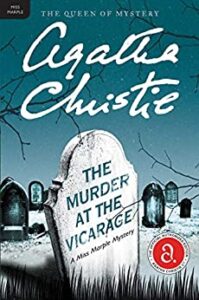 Classic Mysteries can be exemplified by Agatha Christie’s works. There is a crime, usually a murder, and the story is concerned with identifying the killer(s). Classic mysteries, like cozies, generally don’t include any explicit violence or sexual content, and there’s usually no profanity. Some of the notable entries in this category are Agatha Christie’s Miss Marple novels and Sir Arthur Conan Doyle’s Sherlock Holmes stories.
Classic Mysteries can be exemplified by Agatha Christie’s works. There is a crime, usually a murder, and the story is concerned with identifying the killer(s). Classic mysteries, like cozies, generally don’t include any explicit violence or sexual content, and there’s usually no profanity. Some of the notable entries in this category are Agatha Christie’s Miss Marple novels and Sir Arthur Conan Doyle’s Sherlock Holmes stories.
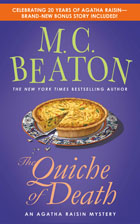
Cozy Mysteries can be seen as a subset of classics. As noted above, cozies also don’t contain explicit violence or sexual content and rarely use profanity. The action usually takes place in a small village or on a university campus. Cozies almost always have an amateur sleuth who becomes involved in the case and may solve it. (But then, wasn’t Miss Marple an amateur sleuth?) Over the years, cozies have evolved, and current examples may include paranormal elements, animals helping solve crimes, or other unusual aspects. (This is why I wondered if my books are in the wrong category.) M.C. Beaton’s Agatha Raisin series and the Murder, She Wrote series are examples of this subgenre.
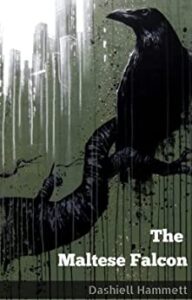
Hardboiled or Noir Mysteries – These two subgenres that were very popular in the 30’s and 40’s seem to be interchangeable. They’re often characterized by a no-nonsense detective who battles the creeps and criminals in an urban environment. According to the Handley Regional Library blog, “Noir protagonists are complex characters who are flawed, risk takers and often self-destructive.” Makes one immediately think of Raymond Chandler’s detective Philip Marlowe: “I’m an occasional drinker, the kind of guy who goes out for a beer and wakes up in Singapore with a full beard.” Or Dashiell Hammett’s detective, Sam Spade. Michael Connelly is quoted as saying, “Chandler credited Hammett with taking the mystery out of the drawing-room and putting it out on the street where it belongs.”
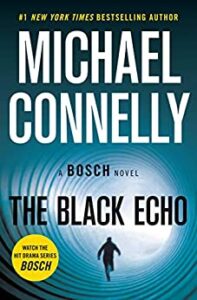
Police Procedural Mysteries focus on the investigation process of a police officer or officers. There are several in this subgenre that I like: The Dublin Murder Squad series by Tana French, the Bosch series by Michael Connelly, and The Dry by Jane Harper.
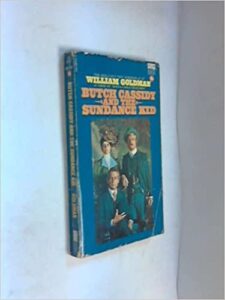
Capers are a kind of mystery where the reader is in on the crime. I don’t know a lot about this subgenre, but the description sounds like some likeable criminals who pull off a crime and fool the inept authorities. One example in this category is William Goldman’s Butch Cassidy and the Sundance Kid.
There are other subgenres that I discovered, including True Crime, Legal Thrillers, Howcatchem (the opposite of Whodunit), Historical, and Locked Room. But there’s so much crossover between subgenres that it’s hard to pigeonhole a book into just one area.
So I’m still not sure how to refer to my books. For now, I’ll just stick with Mystery.
* * *
So TKZers: What subgenre of mystery do you prefer? Who’s your favorite author or authors? If you write mystery, what subgenre are you in?
